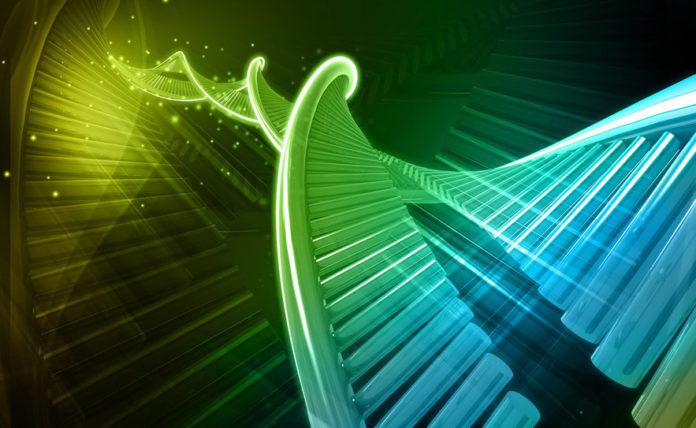
Chinese scientists say they’ve genetically modified human embryos for the very first time. The team attempted to modify the gene responsible for β-thalassaemia, a potentially fatal blood disorder, using a gene-editing technique known as CRISPR/Cas9. Gene editing is a recently developed type of genetic engineering in which DNA is inserted, replaced, or removed.
The team injected 86 embryos and 71 survived, of which 54 were genetically tested. This revealed that just 28 were successfully spliced, and that only a fraction of those contained the replacement genetic material. Analysis also revealed a number of ‘off-target’ mutations assumed to be caused by the technique acting in other areas of the genome. The results reveal serious obstacles to using the method in medical applications.
The scientists have tried to head off ethical concerns by using ‘non-viable’ embryos, which cannot result in a live birth, that were obtained from local fertility clinics. However, the work is very controversial, with some warning it could be the start of a slippery slope towards designer babies.
Below, some experts weigh-in with ethical questions and considerations.
Prof Robin Lovell Badge, Crick Institute, on the science: “The experiments reported by Junjiu Huang and colleagues (Liang et al) in the journal Protein Cell on gene editing in abnormally fertilised human embryos are, I expect, the first of several that we will see this year. There has been much excitement among scientists about the power of these new gene editing methods, and particularly about the CRISPR/Cas9 system, which is relatively simple to use and generally very efficient. The possibility of using such methods to genetically modify human embryos, and therefore humans, has been on the cards since these methods were first described, and recently these prospects have been brought to the attention of the public through several commentaries made by senior scientists and commentators, some of whom have called for a moratorium to halt any attempts.”
Dr Yalda Jamshidi, Senior Lecturer in Human Genetics, St George’s University Hospital Foundation Trust, said: “Inherited genetic conditions often result because the function of a gene is disrupted. In theory replacing the defective gene with a healthy one would be the ideal solution. This type of treatment is what we call gene therapy and researchers have been working on developing techniques to accomplish this for many years.
“Techniques to correct defective genes in ‘non-reproductive’ cells are already at various stages of clinical development and promise to be a powerful approach for many human diseases which don’t yet have an effective treatment. However, altering genes in human embryos can have unpredictable effects on future generations. Furthermore the study by Huang et al showed that the although the CRISPR/Cas9 technique they used can work in the embryo, it can miss the target in the gene and is too inefficient.
“Future research on the technique may improve the accuracy and efficiency, however scientists still don’t fully understand the role of the DNA, and all of its genes. Therefore it is impossible to assess the risks from mis-targeted changes in the DNA sequence, which would affect both the treated embryo and any future generations.”
Prof Shirley Hodgson, Professor of Cancer Genetics, St George’s University of London, said: “I think that this is a significant departure from currently accepted research practice. This is because any manipulation of the germline of human embryos is potentially heritable. Can we be certain that the embryos that the researchers were working on were indeed non-viable? In the past all the gene therapy research that has been approved by regulatory bodies has been somatic, not germline, because of the potentially unpredictable and heritable effects of germline research. The fact that these researchers found that there were a number of “off target” mutations resulting from the technique they used is clearly a worry in this context. Any proposal to do germline genetic manipulation should be very carefully considered by international regulatory bodies before it should be considered as a serious research prospect. This is because of the obvious concerns about the heritability of the genetic alterations induced, and the way in which such research could spread from work on “non-viable” embryos, to work on viable ones once this type of research had been accepted in principle by international regulatory bodies.”
Prof Darren Griffin, Professor of Genetics, University of Kent, said: “Given the widespread use of the CRISPR/Cas9 system, such announcement was inevitable, sooner rather than later. We clearly have a lot of thinking to do. Germline manipulation is currently illegal in the UK but the question is bound to be asked whether this should change, especially if the safety concerns are allayed.”
Associate Professor Peter Illingworth is Medical Director at IVFAustralia: “This is a fascinating piece of experimental science. Using abnormally-fertilised human embryos (I.e. With three sets of DNA instead of two), they have studied whether the a human gene can be modified. They have demonstrated that, in some embryos, but not all, they can change the abnormal human gene. They also find that other genes are affected which may be a serious concern. What they have shown is that it is technically possible, not that it is practically feasible or safe.”
Further information:
Story Source:
The above story is based on materials provided by ResearchSEA. Note: Materials may be edited for content and length.
Journal Reference:
- Puping Liang, Yanwen Xu, Xiya Zhang, Chenhui Ding, Rui Huang, Zhen Zhang, Jie Lv, Xiaowei Xie, Yuxi Chen, Yujing Li, Ying Sun, Yaofu Bai, Zhou Songyang, Wenbin Ma, Canquan Zhou, Junjiu Huang. CRISPR/Cas9-mediated gene editing in human tripronuclear zygotes. Protein & Cell, 2015; DOI: 10.1007/s13238-015-0153-5
